Episode 37: Mormon Stories Host Dr. John Dehlin
April 20 Episode 37: Mormon Stories Host Dr. John Dehlin
Leah and Mike venture into the world of Mormonism with Dr. John Dehlin to learn about problems in the Mormon world, the many similarities with scientology, and some important differences which have tended to make the Mormons more successful, and certainly a lot more powerful and wealthy, than scientology.
Listen Now
View Documents (9)
Joseph Smith Founder of Mormonism
The abbreviated story of Joseph Smith’s creation of the Latter Day Saints
View Online
Former Bishop Sam Young
Excommunicated for his efforts to end inappropriate sexual interaction within the church
View Online
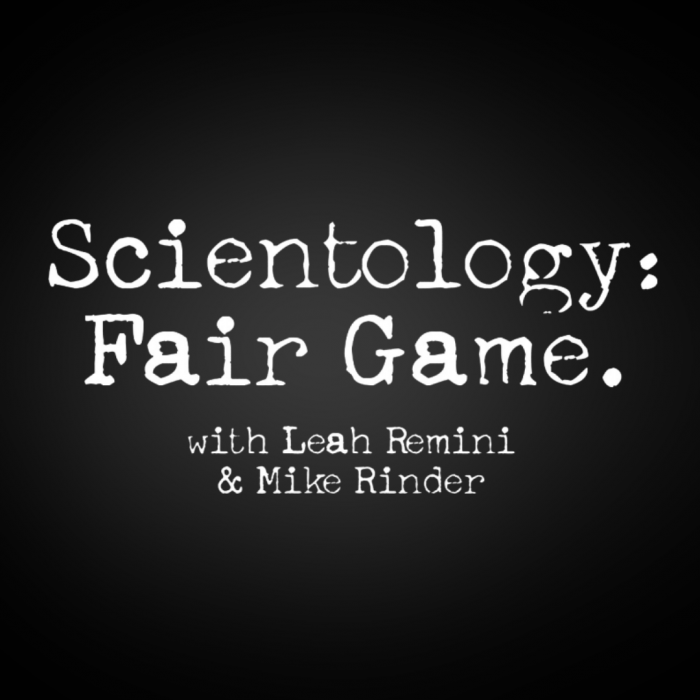
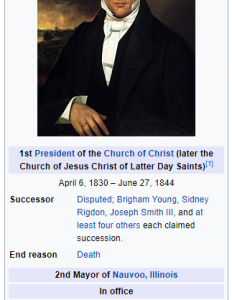
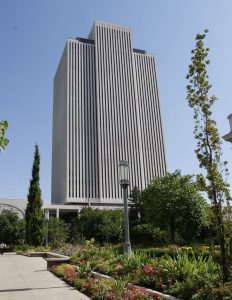

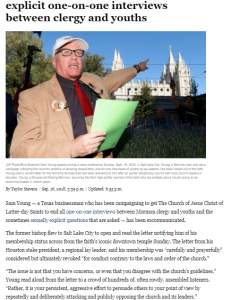
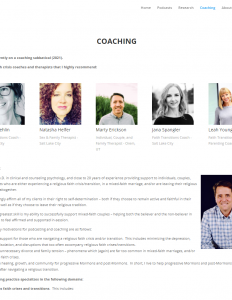
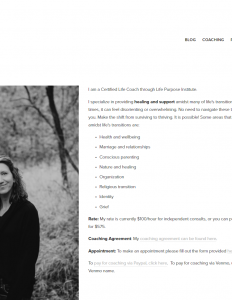
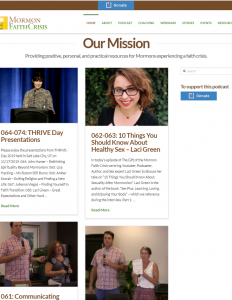
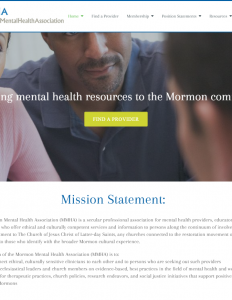
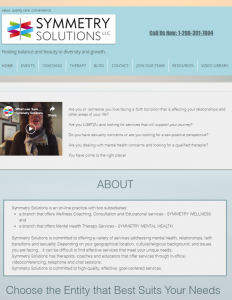
28 Comments
Hi Leah and Mike.
My name is Donavan I’m from Pakenham Ontario Canada, (about an hour west of Ottawa.) I’m a big fan of what the 2 of you do to raise awareness of scientology and how evil it is behind the scenes. I also love that you go into other cults like JW’s and Mormons. The comparisons and ways of thinking fascinates me. I have watched all of The Aftermath and listened to every episode of Fair Game. I always disagree with you on one point though. Please don’t lose it on me when you read this but, I believe that scientology is more similar to other cults like Muslims Christians, and any other than you think. It is completely understandable, having been through what you have, to have the opposite opinion but being completely not religious myself I have a different view. Although Christianity doesn’t punish people as severely as Scientology there are other cults that will kill people who stray. Also honor killings are accepted in some places as well. All churches are run like a business as Scientology is. The difference is that most are smarter and quieter about it. There are lots of differences between Scientology and other cults but I still maintain there is more similar than different. Please don’t get mad as I know this is a hot button issue for you. Trying to take an objective view on this issue is hard especially for someone who has been abused by this for so long. I’d love to hear from a religious studies professor or someone like that to help give a third party perspective.
Keep fighting the good fight.
Thanks
Leah & Mike, thank you so much for the work you do & the sacrifices you have made. It’s inspiring to see you live out of your commitment, and to see the gradual changes/greater awareness that have come out of your work!
With respect, Donavan, your assumptions simply aren’t true. To give you just 1 example of many, I’m a part of an Episcopal church community in an urban area. We have 3 meals a week, along with a number of other services for the homeless including a foot clinic and a winter clothing drive. Our youth do home repair in Appalachia every summer, raising money for building materials, etc. within the community. Some of our adults work with a community in Mexico. So, so many in the community volunteer their time for these efforts and others.
Ours is a welcoming community, and I mean welcoming to all. I’ve experienced first-hand the love of my community. SO much more happens there than could ever be “paid for”.
Not all faith communities are like ours, and ours is far from perfect. But as a whole we are greater than the sum of our parts, and I am thankful for our community, as well as many, many others like it throughout the country. Communities like ours are full of activists who fight for equity and who live out of kindness… you know, “Love your neighbor as yourself.” It’s a real thing in many communities of faith.
Leah and Mike,
Love your podcast. I listen every Tuesday on youtube. You should interview Rick Alan Ross on your show. He is a cult deprogrammer who has been fair gamed numerous times. It would bring another new dimension to the show. 🙂
Loved the episode with John Dehlin! One of the most helpful tools I used to exit my system of control/high demand religion is listening to the experience of other people who had escaped from their similar high demand religion. This helps to combat the “what if I am wrong” conditioning that is ever present when taking the steps necessary to escape. Loved the idea of a ex-religion-con. Can’t wait to attend in the Salt Lake City area!
I love your podcast so much! When I first learned about Scientology, I felt like I had this weird obsession and judged myself for wanting to binge everything I could. As I’ve learned more and expanded into learning about other cults, I realize that I’m no obsessed out of no where. I can RELATE to being in a cult. I have a narcissist mother and my family unit growing up has lots in common with a cult. While of course, the work to dismantle large institutions is so important, I also think your work is so important on an individual level. For anyone who part of a family with some of those characteristics, learning about cults is healing and helpful. I have on favor to ask. Today as I was listening, an ad for a weight loss prescription medication came on. It turns my stomach! I’m happy to share more, but advertising for weight loss any more is honestly a micro aggression. We have to stop fat phobia, and medicalizing body size, and stop adding to the stigma that fat people face daily. The research is clear-weight stigma is more toxic to your health than being fat. I just love you guys so much but it literally harms me to hear that ad while I’m listening in.
Fantastic episode! The lead singer of Imagine Dragons grew up Mormon and has since left. He did a documentary about it, a must watch!
Thank you again for all you do!
Thank you for your podcast. I’ve learned so much about Scientology, even though I know you are coming at it from a certain perspective.
I will take some exception to Mr. Dehlin’s commentary on all things LDS. Granted, I’m devout, and he clearly has an agenda and I don’t think was being fully honest in his responses. For example, the LDS Church has clear guidelines on how to deal with reported child abuse, which is always to report to law enforcement. Yes, it has a hotline to assist lay ministry on how to proceed, primarily due to mistakes that have been made in the past. Mr. Dehlin is aware of this and if you look closely you will find that the LDS Church is very progressive in this respect, so please take a look.
Also, strange comments about special treatment by Bishops for “famous” Mormons that may have faith concerns, but not for regular LDS. I know this is incorrect. My son meets with his Bishop on a regular basis about issues he has with the faith, and my son’s request, and is very happy with the opportunity to voice his concerns. I’m happy as well. We talk openly about his concerns. And should any of my children opt out at some future time, I wouldn’t cut them off or stop loving them. I would likely increase my interaction. They are my kids for hell’s sake. And every LDS member I know would do the same.
Finally, the LDS Church does have some progress to make on LGBTQ et all issues. I am confident that will come. It has made significant progress and change since I was young and continues to do so. Likely not as fast as those like Mr. Dehlin would like, but at a pace with which the Church membership is comfortable. The important thing is that the Church has adapted and continues to adapt. I noted that Mr. Dehlin wanted to steer the conversation away from those points.
Are we tribal? Yes, just like any other organization. Does it hurt us when members of our tribe depart? Yes, just like any other organization. Do we make mistakes in how we react to that? Yes, just like any other organization. But I have faith in the counsel we receive to love one another and treat everyone with whom we come into contact as a Child of God, and see them as God sees them. We too often fall short, but will endeavor to regret, repent, and do better.
Thank you again for your podcast.
Hi Leah and Mike, Yesterday I listened to your podcast with Dr. John Dehlin. I watched each episode of your Aftermath series and have also followed along with your podcast. I have great compassion for anyone who has been injured through the misuse of religion. As a practicing member of The Church of Jesus Christ of Latter-Day Saints of 62 years, I was deeply disappointed at the blatant misrepresentations on your latest episode. If I may share a few of my personal experiences in contrast…I am the child of a practicing mother and a non-religious father. In the 1950’s and beyond, my father was treated with kindness and respect by our congregation and leaders. No pressure to convert, never a suggestion of difficulty that my mother would be better married to a “member”. I am the proud mother of a gay son who has left the church. Our family is intact and the only, ONLY response from my leadership when that has been a topic of conversation is “I hope that you will always open your hearts and home to him and his friends”. Done! Finally, in my experience with ex-communications there has NEVER been anyone with whom I’ve been intimately acquainted that has experience anything like unto “Fair Game”. Truly, I see that as slanderous. As far back as my youth, my child predator cousin was indeed reported to law enforcement and incarcerated. (As was correct.) In my own extended family abuse was reported and acted upon by law enforcement, and never was another path suggested by clergy. The most offensive phrase I heard on the episode was Dr. Dehlin’s assertment that children are told to “forgive and forget”. Please refer to church policy and numerous general conference addresses that directly dispute that. You two found each other through Scientology, which should remind you that among any collection of people there is good. The opposite is always true as well. Before you proceed with further collaboration, I would encourage you to be fair and balanced and accurate. Thank you for your good work to uncover abuses, but please don’t use the filter of your experiences to see evil where there is good.
Mormon Shunning…..never, ever heard of that. This is John’s experience, SO much generalizing & blanket statements. Have an active Mormon Female on your podcast to balance out an excommunicated male.
John’s a Utah Mormon – he’s older- this is HIS experience….MUCH different than my Mormon life in overseas & California.
Please look at Christian Science. I am a survivor, a fourth generation member.
Especially dangerous to be a kid in this HIGH CONTROL group, when it comes to health. I saw my first medical pro when I snuck off to get birth control as a teen. I saw kids die from Measles, etc. The pandemic has been so triggering because of my childhood indoctrination of believing disease did not exist. Any disease.
2/2 And Christian Science has only survived because its members are old money and connected politicians.
Leah & Mike,
I enjoy your pod cast and all the work you both have put into awareness of concerns within Scientology and other type organizations.
Episode #27 with Mr Dehlin was interesting. I’m a police officer and I’m a Latter-Day Saint. I heard a lot of holes in his answers, but those gaps are part of his own personal truth and I respect that.
Whereas Mr Dehlin has had his own experiences with his faith (former faith), please do not take everything he shared about being LDS as truth for all members of the faith. The the vast majority of members live very charitable, meaningful, service orientated, faithful lives and the LDS church and its leaders do much good world wide.
Mr Dehlin tells us that he had a crisis of faith, which he shares after he provide a resume of his areas of service. This is not a unique experience. Many people in various religions or non-religious organizations experience trials of faith or questioning of belief structures. Members of the LDS church experience their own set of trials just like anyone else would or does.
Doctrinal areas with their historical context that he shared are points of view in that there are rebuttals to his assertions. This is not to say the concerns from current members or former members who share like minded views aligned with Mr Dehlin beliefs are unsubstantiated or should be negated. People leave religious organizations for many different reasons and those reasons should not be judged.
Mr Dehlin also shares his vast educational knowledge with the audience, prepping the audience to accept what he will share as 100% truth. I get it, this is done all the time. When I testify in court or write a search warrant, I have to list a pedigree explaining who I am and why I believe probable cause exist for x, y and z. But doing so does not mean I’m an expert or that everything in the investigation must be listed. I believe the same is true what Mr Dehlin shared. I also believe it would it be fair to recognize in the professional sense, Mr Dehlin has profited from a network of disillusioned LDS members. If that is true, good for him, but it does show the need to maintain a certain narrative.
No ecclesiastical leader is perfect nor is perfection an achievable goal. To hold any person to a standard of perfect is incredibly short sided. What makes the LDS church or beliefs a target is a belief of being able and open to receiving personal knowledge (personal revelation, aka a good feeling) on a subject in their lives. This openness also lends itself to the counter arguments of why does Mr Jones feel so great about this, but Mr Johnson doesn’t. What’s then wrong with Mr Johnson? Well nothing wrong with either. We all get inspired at differing times for differing moments that we individually need that in our own respective lives.
As Leah pointed out early in the pod cast there are distinct differences in the LDS faith and Scientology. And respectfully in my opinion, Mr Dehlin is not the LDS version of Leah or Mike.
Regretfully every religion has membership who have alterer motives, who lie, cheat, steal, who commit atrocities against others. Each and every one of those should be held accountable to the full measures of the law and those actions are contrary to the faith of the LDS beliefs. Those who participate in the LDS church do face a membership council are are separated from membership via excommunication.
What would be incredible would be for Mr Dehlin to use his same analytical methods and apply them to other faiths, denominations, Protestant and Catholic alike or other non- religious organizations as well. Why? Because I’ve venture to guess because of the same variable in every organization- that being the human element or human condition, he would see the same or similar problems or concerns in them most of them as well. Churches can and do adapt beliefs, revise their systems and mechanics of administration. It’s the ones that don’t or can’t that are concerning.
I certainly did not take offense to Mr Dehlin’s comments. The context is nothing new. They are his beliefs and in the end if they help him and he helps others to be the best person they can be, who is anyone to judge.
Respectfully (and an avid listener),
Doug
Leah and Mike,
I just listened to your podcast with John Dehlin. I am a Native American Bishop in the church and I have grown up in the Church of Jesus Christ of Latter-Day Saints and there are many statements that John made that are simply not true. I have never heard nor been taught that people with dark skin are bad people or damned. I have a sister who is not active in the church who I still involve with heavily in my life. I have lots of friends who are members of the church and who are not and what John seems to be speaking from is his own personal experiences and much of what he is saying is not true. If you would like a view of what the church is really like for a person of color please reach out to me and I would be happy to answer any questions.
I have enjoyed watching your show the after math and think you guys are doing good work but please try to see the church from both sides not just one disgruntled mans view.
This was such a deeply necessary, healing conversation. I hope you can have Dr. John on again. Both Aftermath and Fair Game have been such lifelines for people struggling after leaving Mormonism. Great work, everybody!
Thanks Leah and Mike for all that you do. I have been a long time listener and have always been interested in your perspectives, however this episode featuring only John Dehlin was disappointing. It would have been so advantageous to present the podcast with a counterpoint to John’s opinions. While I respect his experience, he’s clearly biased and glossed over or exaggerated on so many of your points. As an unmarried, progressive, non-racist, alternative lifestyle woman, I can confirm that it’s possible to live life happily as a Mormon, when John made it seem impossible that such a thing could be possible.
First of all, I am a HUGE fan of your and Leah’s podcast on Scientology and honestly a big fan of any cult-related content.
I am in the middle of listening to Episode 37: Mormon Stories with Dr. John Dehlin. Interestingly, when I first saw the episode I was really excited. I am a practicing Mormon but I am open to any and all critical information of the faith and a true seeker of the truth. One reason I was excited is I have close family members and friends (including my best friend) who have left the church. Also, I have ZERO interest in remaining in a faith that is based on lies and was hopeful — because I am such a dedicated listener of yours — that your podcast would be something that would shed light on the faith in a way that enlightened my understanding of it.
Unfortunately, John lied and twisted truths often throughout the segment. This meant for me that even if SOME of what he shared WAS true, I couldn’t trust it, because he proved himself to be an unreliable source. For example, the church’s history — like many faith’s history, not that that’s an excuse — with LGBTQ issues and race has been problematic. However, the church absolutely DOES NOT teach that people of color are less than. To verify this, you can look at the talks given at this year’s LDS General Conference which contain quotes such as “Black lives matter — that is an eternal truth all reasonable people should support” or “His doctrine on this matter is clear. He invites all to come unto him, ‘Black and white, bond and free, male and female”.
Additionally, while the church is rooted in traditional values that do feel outdated, women are never taught they are less than. Women and men ARE taught that we have different responsibilities (which admittedly can feel frustrating), but never LESS.
John’s assertion that there is a fair game policy in the church is an outright lie. If my husband were to leave the church, I would not divorce him or shun him nor would I be pressured to do so. My best friend is gay and I talk to her daily. My brother is no longer practicing and we also talk daily and have a loving relationship. None, not ONE, of the many people I know who have chosen to leave the church were attacked in any way. Members are NEVER taught to attack anyone who leaves. Of course, some individuals within any group decide to divorce or distance themselves from friends or family for many reasons, but this is not mandated by the church. The Mormon church does not do anything to members who leave other than try to invite them to come back. I can validate that it would be difficult socially to leave because the church is so central to many people’s lives, but again, nobody is forced or coerced to cut ties or change their relationships with those who do.
There are more examples, but I am sure that I sound like an out-of-touch-with-reality, faithful member who can’t be trusted. If you think that, I understand, even if that is not the case.
Just in an effort to help (maybe?) make me out to be a legitimate source, I was raised in Michigan (where there are very few Mormons), I went to public school my entire life and was very exposed to the world outside of the faith, I have a master’s degree, and I am trying to find a way to move out of Utah every day because I can’t stand the homogeneous culture here, haha. Unfortunately, Utah’s economy is great so I am probably here for another year or two until my husband, kids, and I can move.
With hope that a podcast like yours can truly shed light on real issues of the church, I reach out to you, Mike and Leah. If you guys are TRULY committed to helping people leave cults or harmful faith groups, have a fact-based segment on the faiths you are discussing. Fact check your sources. Leah preaches about how she wishes people would do that all the time! Otherwise, you will lose the audience members who could potentially benefit from having their minds and experiences expanded.
I am still a faithful listener and fan.
Also, why does my comment keep getting deleted? I thought you guys were all for transparency and seeking knowledge and truth? Please do not block my comment as it is a sincere, worthwhile one. Your listeners deserve to know the truth.
Not familiar with anything being deleted?
Throughly enjoy both the podcast and the Aftermath show. Kudos to all contributors and let’s hope all your efforts end this cult.
May I ask that you stop using the phrase “committed suicide”
This language is out dated and offensive. It refers to suicide being illegal. Similar to saying “committed murder”
Died by self inflicted gun shot wound or at their own hands in my opinion is more appropriate.
Thanks
literally just watched the Netflix show “murder among the mormons”. and whoa. those old rich white men were willing to pay bank for “documents” that spoke about their religion in anyway other than what they put out. they were going to stash it away in an old vault somewhere. turns out they were all shams (this was in the 80’s so spoiler alert – old news). just to keep something suppressed.
ps – what is the difference between going to an auditing session and going to a sex worker?? nothing. they are both pay to play. and in a 501c3 thats illegal. but seeing a sex worker at least you’ll be smiling after!
I love your podcast! Hoping you can interview with someone from ATI- Advanced Training Academy (the church/cult of the Duggar’s)
https://gawker.com/the-creepy-fundamentalist-homeschool-cult-that-trained-1706969994
Interesting some of the similarities to Scientology.
You should be aware that John’s decision to lie to you on this podcast regarding who has been criticizing him has escalated a conflict between him and Mormon women and has drawn me out into the open. I am a former employee of his foundation who filed a charge of sexual harassment against him in 2013 after he fired me, silenced me and began lying to the public about our relationship on his podcast.
To many in the Mormon world he is known as the “Harvey Weinstein of Mormonism.” He is not being criticized by the church but by Kate Kelly, the woman who was excommunicated alongside him. Kelly was excommunicated for seeking women’s ordination.
In recent days, since this podcast, John held a live media event meant to harm and discredit me. I responded by releasing documentation and a forensic interview I recorded in 2018. John has responded to my documentation by locking down his Twitter stream.
I want you to be aware of how you are being used by an offender. I would argue that within the Mormon sect there is a dangerous inner cult and that most of the problems in the Mormon sect that John discusses here are due to an extreme tendency towards sectarianism.
https://mormonrosebud.com
I was raised Mormon and left as soon as I was able. Being the only ex in my family has been isolating and very hard. I left the Mormon church because I hated the way it made me feel as a female. I knew very little about the inaccuracies in the BoM, knew a little about polygamy and racism in the church’s past. I grew up hearing justifications for all of it. I am now in my mid 30s and I had always been scared to look into the church for fear I’d find it was true and then I’d have to be a part of a religion that made me feel so bad. One day I saw Scientology and the Aftermath and decided to watch it. This show changed my life. I found so many parallels. This show gave me the courage to examine my past, recognize the wrongs in the church i was raised in. Because of that show I researched Mormonism, found Mormon Stories, researched the history and doctrine of the LDS church. Because of this show I was educated enough to help be a support to a family member as they went through a faith transition. Leah and Mike, you have done so much for so many people. You are so brave sharing your story and speaking out and I am so grateful. Mike, I have so much respect for you. I can only imagine how hard it must be being so honest about your past deeds. I greatly admire you and find your honesty inspiring. Sending you all much love and respect.
Thank you so much
I have only recently started listening to the podcast (in the last few weeks) after revisiting “Scientology and the Aftermath” for the third time, and again lamenting that the show wasn’t ongoing. (Of course you’d want to continue doing the show forever and ever, right?!)
Because it always leads to me fairly obsessively seeking out more information about Scientology, after we finished the series again, my wife found and directed me to Tony Ortega’s site, and this podcast. It’s been heaven binging the podcast to catch up but this episode got to me.
Some of this (very long-winded) comment will be in response to the podcast, some will also be a different perspective to respond to/open a dialogue to some of the other commenters.
I am post-Mormon (there are negative connotations about exes that I try to cautiously avoid) from a multi-generational Mormon family, also descended from some of the founding pioneers, mentioned by John (and admittedly, my family have historically been in the more orthodox side of Mormon, which may color my experience). For my mental health, I left the church at 22 (while I was in the process of preparing to serve a mission for that faith), when I realized that I had to come out as lesbian. That was over 23 years ago, and I’d frankly forgotten, or refused to think about for a long time, a lot of the impacts that leaving had on me. Hearing your discussion with John brought a lot of that back.
I won’t discount that my experience inside of the faith was different from most in a lot of ways — multi-generational, old Mormon family, living in a more orthodox-grounded practice of the faith, in the state famous for being the home of the church.
When I was preparing to come out to my family, I was doing so with the understanding that it would likely cost my relationship with the majority of them. This is not from any practice as formalized as disconnection, but very similar to some of the examples from the podcast today — I would no longer be allowed to be around or trusted in the same area with the children of family members, I wouldn’t be invited to most family events, and so on. This was a very real consideration that never left my mind when preparing to have that conversation with my family.
While I’m happy to say that I’ve been able to re-establish a relationship with most of my family (and the perspectives of those family members has changed pretty dramatically in my lifetime), it was only after 5 or so years. I love my Mormon family dearly, and they do remain some of the best examples of kindness and compassion I’ve seen in humanity. But … but …
And in those ellipses lies the gap where my wife and I still are excluded from the lives of some of my family, where some conversations turn a bit colder when we enter a room, where topics can become more aggressive if we don’t immediately agree, etc.
There’s a moment in the Aftermath where Leah and Mike are sitting in a vehicle and he turns to say, “What the **** were we a part of?” (Unlike John, I developed a bit of a potty mouth since leaving the church, so the choice to edit is mainly for consideration for the audience.) This podcast episode brought back so many confrontations, bishop’s interviews, reactions, and practices that I hadn’t thought about in years. And I turned to my wife and asked basically the same question, not because I found gaps in accuracy in what John was saying, but that it rang all too true and brought a flood of memories back to me.
P.s. love Love LOVE the podcast. I can’t even begin to find the words (even after all of those previous, huh) to describe what it’s done for me personally.
Thank you, Leah and Mike, for Aftermath (I’m just about through with watching), and I’m glad you continue the exposure on this podcast. I appreciate how you’ve brought folks on to touch on other cults like LDS, JWs, and a few others. Have you ever thought to ask an ex-Christian Scientist on the show? I am one, and omg, CS-ers like I used to be viscerally and vehemently deny any similarities between Scientology and CS (for which CS is often confused), but come to find out from Aftermath, the likenesses are many–and disturbing. I recall at least one comment re: an episode on another cult wondering whether that leader had studied LRH, and I wondered watching Aftermath whether LRH had studied MBE (Mary Baker Eddy, the “founder” of CS).
From theology that derides mental and physical healthcare to mind control to aggressive efforts to suppress unfavorable press to ornate church buildings empty of adherents to CS policy that makes MBE the “beloved leader” and “pastor emeritus” of Christian Science in perpetuity (policy written by the woman herself)–and so many more–the parallels between the two “religions” blew my mind.
I’m sure the growing ex-CS community and your wider audience could appreciate an episode delving into and exposing this other “scientific” cult that pre-dates LRH’s by 80+ years and whose far-reaching damage so often seems to fly under the radar of both the press and cult-watchers (think religious-exemption laws for vaccination and
that protect parents from prosecution for medical negligence/manslaughter/homicide–almost all of which were successfully lobbied for by CS “committees on publication” and CS or CS-friendly legislators). exchristianscience.com is a great place to start to learn more.
Thanks again for the work you do!
I’m catching up on this amazing podcast, and to date, this was the best one! I am an ex-JW and how Dr. John explained “shame” was right on point. I hope you do have an ex-cult-con. I’ll be there!